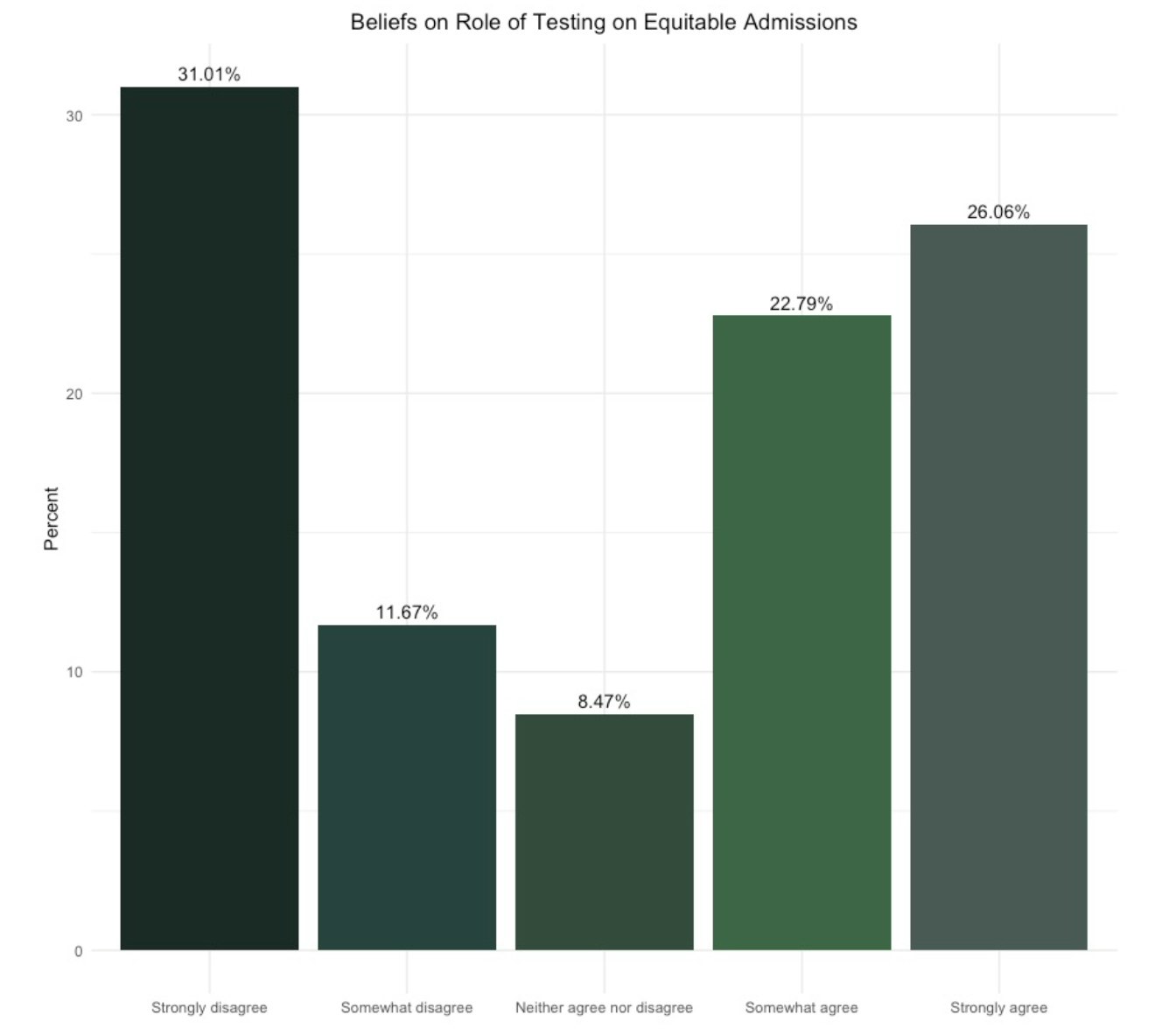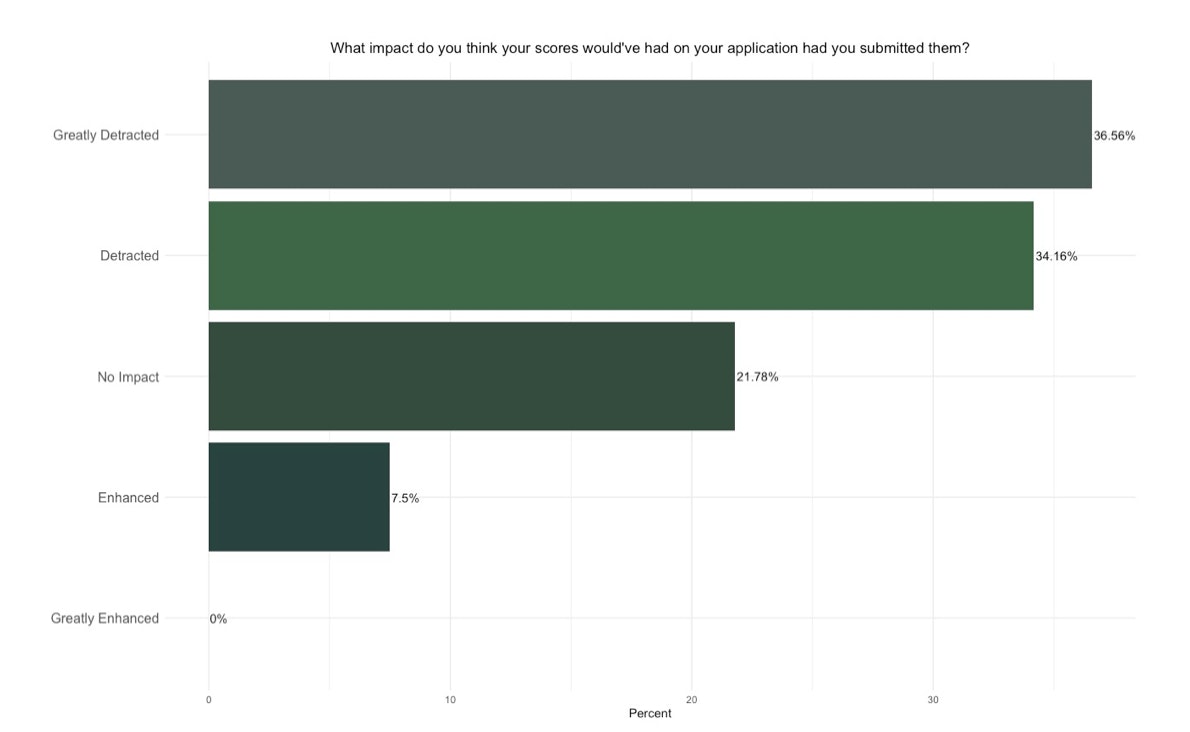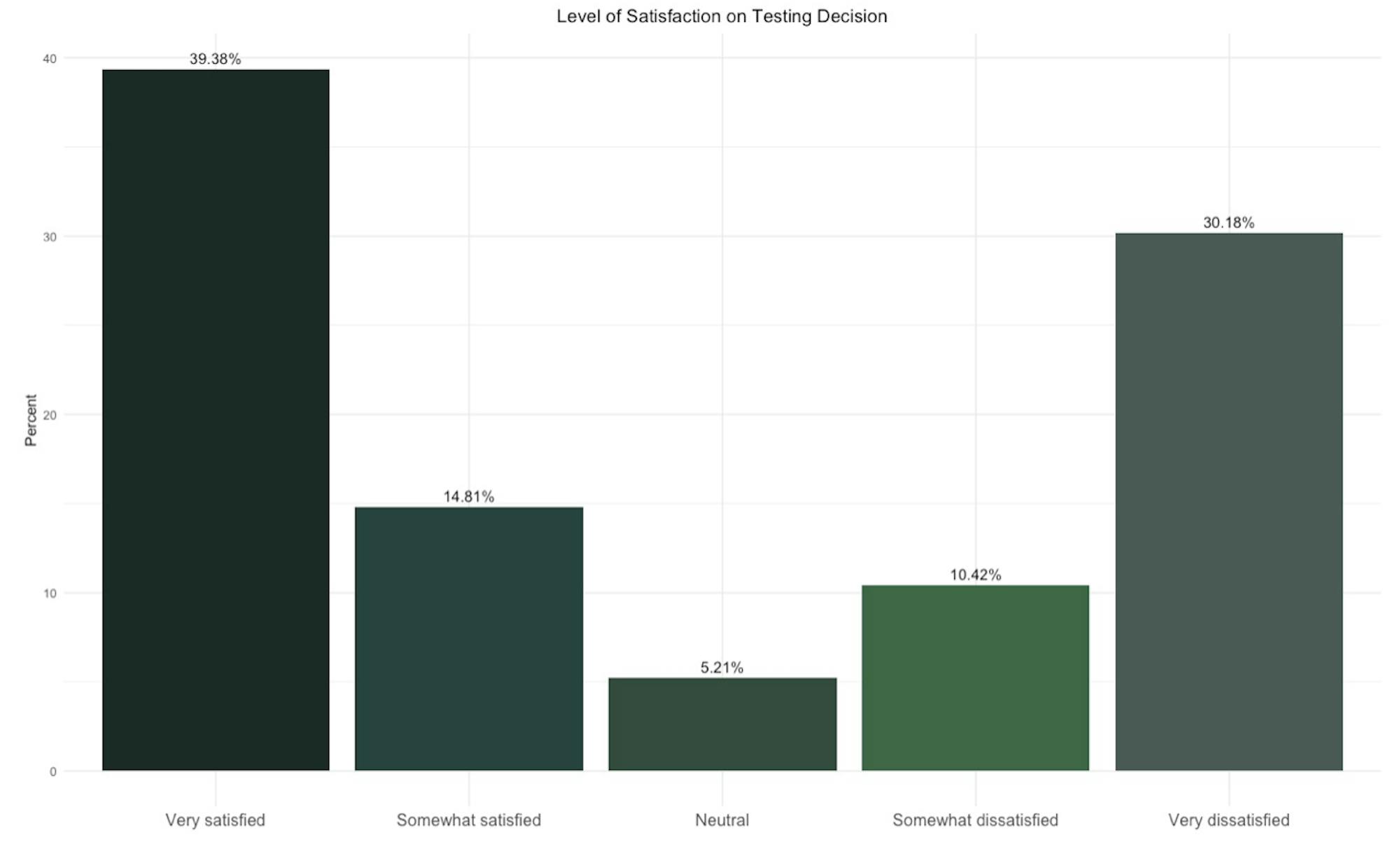Following the College’s decision to reinstate the standardized testing requirement for applicants to the Class of 2029 and beyond, The Dartmouth conducted a survey on student reactions to the announcement.
Approval of the Decision

Student responses revealed mixed opinions regarding the standardized testing requirement: 54% were very or somewhat satisfied with the standardized testing requirement, while 41% were very or somewhat dissatisfied. Only 5% of students stood neutral on the issue.
While the majority of respondents indicated satisfaction with the decision, a follow-up question revealed that students did not believe the reinstatement accurately reflected the student body’s sentiments. Of those surveyed, 51% responded that they believed the reinstatement decision did not reflect the student body’s opinions, while 17% of respondents held no opinion.
The delivery of the decision was another divisive issue among students. Slightly more students indicated dissatisfaction than satisfaction with College President Sian Leah Beilock’s decision to send a campus-wide email — 43% of respondents held positive views, while 47% of respondents felt negatively. An additional 10% were neutral or unsure. Many students felt strongly about their views, with 30% of students selecting “very satisfied” and 33% of students selecting “very dissatisfied.” Students were similarly divided on the soundness of the Dartmouth faculty-led research study used to justify the testing requirement — 48% of respondents indicated satisfaction with the study, while 38% indicated dissatisfaction.
Standardized Testing as an Equity Solution

The Dartmouth also asked students if they believed testing requirements promote more equitable admissions. Forty-nine percent of students responded that standardized testing requirements make the admissions process more equitable, while 43% of respondents indicated that standardized testing requirements will not lead to more equitable admissions. The remaining 8% were neutral on the issue.
The Dartmouth faculty who conducted the study concluded that a standardized testing requirement would help applicants from less-resourced backgrounds, according to past reporting by The Dartmouth. When asked whether they believed the test-optional policy — implemented in June 2020 due to the COVID-19 pandemic — disadvantages applicants who come from less-resourced or underrepresented backgrounds, 51% of respondents agreed, while 34% of respondents disagreed. Of the 51% of affirmative responses, 64% expressed strong support for the statement.
Personal Testing Experiences

Approximately 81% of students who submitted test scores indicated they felt the score enhanced their application, while around 7% of students who submitted their scores thought that scores detracted from their application and 12% indicated that their score did not change the strength of their application.

Of students who did not submit a test score, 71% responded that they believed their score would have hurt their application, while 22% indicated they felt their scores would have made no difference on their admission. Eight percent of students who did not submit their scores felt they would have enhanced their application.

Finally, students were asked to identify the most important factor in their decision to forgo taking a standardized test. The majority of respondents, 53%, indicated that they did not have the opportunity to test. This result may be influenced by respondents from the Classes of 2024 and 2025, who may have faced closed testing centers during the pandemic.
The other half of respondents were split between feeling as though a test score would not help their application (23%), not having the resources to test (21%) and other not-listed reasons (3%).
Methodology Notes:
From Feb. 26 to Feb. 29, The Dartmouth fielded an online survey of Dartmouth students on their opinions about the reinstatement of the standardized testing requirement in Dartmouth admissions. The survey was sent to 4,447 undergraduate students through their school email addresses. Three hundred seventy-two responses were recorded, resulting in an 8.4% response rate. Twenty-three responses were submitted after data collection concluded and are not reflected in the article. All data reflected in the article’s text is approximate. Using administrative data from the College’s Office of Institutional Research, responses were weighted by class year, gender and race/ethnicity. Weighting was done through iterative post-stratification (raking). Survey results have a margin of error ± 5.1 percentage points.




